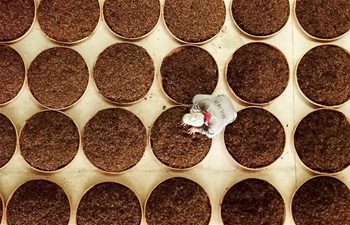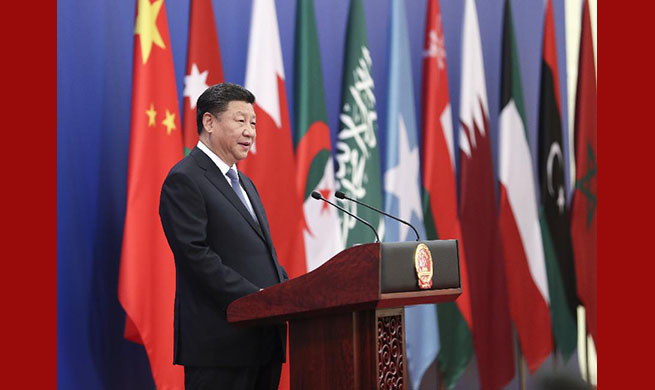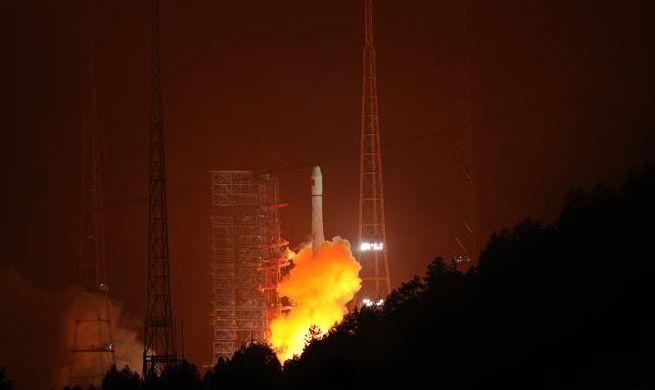JERUSALEM, July 10 (Xinhua) -- An Israeli non-profit organization said on Tuesday that an Israeli spacecraft is scheduled to land on the moon for the first time at the beginning of 2019.
The spacecraft will be launched this December, as a payload on a SpaceX Falcon 9 rocket from Cape Canaveral in Florida, the U.S., before landing on the moon two months later, SpaceIL said in a statement.
The Israeli spacecraft is expected to reach the moon on Feb. 13, 2019, if successfully, making the country the fourth around the world to have landed its aircraft on the moon, after the United States, Russia and China.
The lunar spacecraft will be the smallest to land on the moon, weighing only 600 kg, and measuring 1.5 meters high and 2 meters in diameter. Its maximum speed will reach more than 10 km per second.
The spacecraft, carrying the Israeli flag, will take photos and videos of the landing site and measure the moon's magnetic field as part of a scientific experiment.
The project of the Israeli lunar spacecraft took eight years at a cost of around 88 million U.S. dollars.
The initiative is mostly funded by individual donors, headed by SpaceIL President Morris Kahn, who donated about 27 million dollars.
"The launch of the first Israeli spacecraft will fill Israel, on its 70th year of birth, with pride. It is a national accomplishment that will put us on the world's space map," Kahn said.
Israel Aerospace Industries, the country's prime aerospace and aviation manufacturer, has been a full partner in this project since its inception, along with other partners from the private sector, the government companies and the academia.
The project started as the only Israeli contestant in the international Google Lunar XPRIZE competition. The winner was expected to earn a prize of 20 million dollars to fund the landing of the first non-governmental unmanned spacecraft on the moon.
The competition, however, ended with no winner on March 31, when Google announced that it would no longer sponsor it.
Nevertheless, after raising enough funds, SpaceIL determined to continue its mission.

















